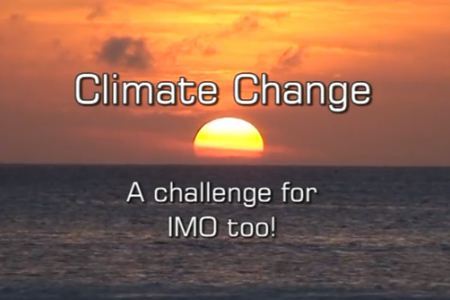Eyewitness at the UN Climate Conference
Copenhagen Out of the Frying Pan, Part 1

Copenhagen Out of the Frying Pan, Part 1
There was some good news out of Washington for a change. The President hosted a high-profile summit on jobs and Congress started work on a Wall Street speculation tax to help pay for a new jobs bill.
Led by Oregon Representative Pete DeFazio and Iowa Senator Tom Harkin, a group of lawmakers introduced a measure sure to drive Wall Street crazy.
There was a time, in the early 1990s, when health insurance companies devoted more than 95 cents out of every premium dollar to paying doctors and hospitals for taking care of their members. No more.
Since President Bill Clinton's health reform plan died 15 years ago, the health insurance industry has come to be dominated by a handful of insurance companies that answer to Wall Street investors, and they have changed that basic math. Today, insurers only pay about 81 cents of each premium dollar on actual medical care. The rest is consumed by rising profits, grotesque executive salaries, huge administrative expenses, the cost of weeding out people with pre-existing conditions and claims review designed to wear out patients with denials and disapprovals of the care they need the most.
This equation is known as the medical loss ratio (MLR), an aptly named figure that is widely seen by investors as the most important gauge of an insurance company's current and future profitability. In a private health insurance industry that collected $817 billion this year, a 14 percentage point difference in the MLR represents $112 billion a year! Over 10 years, that would be more than enough to pay for health reform.
Last week, Ben Bernanke, the head of the Federal Reserve, came before the Senate Banking Committee for a confirmation hearing. Bernanke was nominated by President Bush for a four year term beginning in 2006. President Obama chose to continue with Bernanke and re-nominated him this year for another four year term.
 If a captain fell asleep at the helm of an oil tanker traversing dangerous waters, the ship owners and the public would demand that they never be put in command of a ship again. But, despite 12 years of being asleep at the wheel, the International Maritime Organization (IMO), a specialized United Nations agency responsible for international shipping, is demanding that it be re-appointed to have sole responsibility for addressing the rapidly rising greenhouse gas emissions from the shipping sector.
If a captain fell asleep at the helm of an oil tanker traversing dangerous waters, the ship owners and the public would demand that they never be put in command of a ship again. But, despite 12 years of being asleep at the wheel, the International Maritime Organization (IMO), a specialized United Nations agency responsible for international shipping, is demanding that it be re-appointed to have sole responsibility for addressing the rapidly rising greenhouse gas emissions from the shipping sector.
The long-anticipated debate on financial services reform was scheduled to begin on the House floor yesterday. But in a bad sign for reformers, conservative Democrats managed to wring damaging concessions out of House leadership before the debate even began.
There was some good news out of Washington yesterday for a change. The President hosted a high-profile summit on jobs and Congress started work on a Wall Street speculation tax to help pay for a new jobs bill.
Led by Oregon Representative Pete DeFazio and Iowa Senator Tom Harkin, a group of lawmakers introduced a measure sure to drive Wall Street crazy.
 The University of Colorado at Boulder has accepted a $12.1 million grant from cigarette maker Philip Morris (PM) to put on "Life Skills Training" (LST) programs in middle schools, nominally aimed at reducing students' use of tobacco, alcohol and other drugs.
The University of Colorado at Boulder has accepted a $12.1 million grant from cigarette maker Philip Morris (PM) to put on "Life Skills Training" (LST) programs in middle schools, nominally aimed at reducing students' use of tobacco, alcohol and other drugs.
Notwithstanding that a federal court in 2006 found Philip Morris guilty of engaging in 50 years of public fraud and racketeering, a 2006 peer-reviewed study of tobacco industry documents conducted by the University of California San Francisco's Center for Tobacco Control Research and Education looked at why tobacco companies so robustly promote Life Skills Training. They found that since 1999, PM and Brown & Williamson have both worked to disseminate Life Skills Training programs into schools across the country. Why? As part of their effort, the two companies hired a public relations firm to evaluate the program. The evaluation showed that LST was not effective at reducing smoking, after either the first or second year of implementing the program. Despite this, the tobacco companies have continued to eagerly award grants to implement the program.
Next week, up to 20,000 people will descend on Copenhagen for the COP15 climate change conference, which aims to negotiate a successor agreement to the Kyoto Protocol. Aside from the thousands of members comprising the 192 national delegations, there will be thousands more lobbyists from numerous industry lobby groups.
Center for Media and Democracy (CMD)
520 University Ave, Ste 305 • Madison, WI 53703 • (608) 260-9713
CMD is a 501(c)(3) tax-exempt non-profit.
© 1993-2025